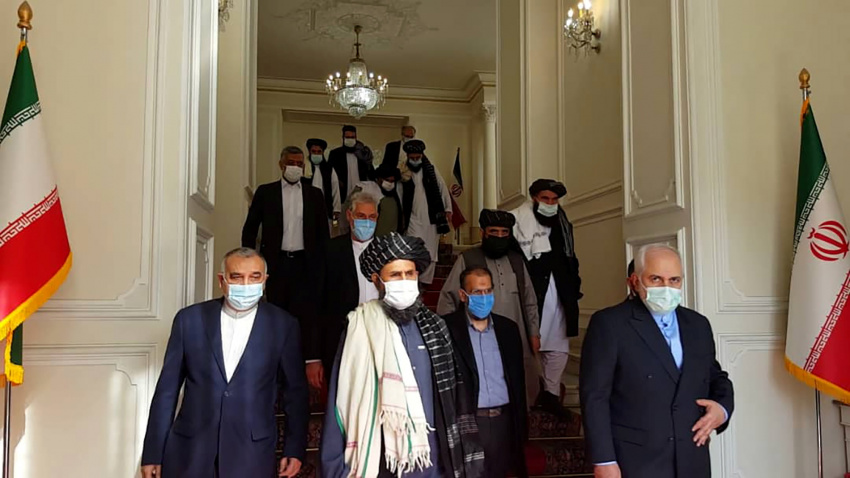The Paradoxical Implications of Taliban's Victory For Iran
Kaveh L. Afrasiabi

The resurgence of a Taliban-led government in Afghanistan twenty years after the US invasion represents a major (geo) political earthquake with multiple aftershocks that will likely continue to rattle the region for sometime to come. With the dust of the Taliban's successful storm of Kabul and other provincial capitals in less than two weeks yet to settle, the fluid situation throughout Afghanistan is marked with a great deal of uncertainty, awaiting the passage of sufficient time to determine, first and foremost, if indeed the long war is "over" as claimed by the Taliban or civil war and anarchy, as well as a great deal of terrorist incubation, will dominate the scene in the months and years ahead?
On the whole, there appears to be three scenarios for the future of Afghanistan, that is, a unified Taliban government, normalizing relations with the neighbors and others and threading the path of state-building along its self-prescribed path, second, a perpetual state of war lordism, anarchy and growing strife within the ranks of Taliban and, third, a more inclusive polity led by Taliban that harbors elements of a republic and parliamentary politics as a result of Taliban's need to build a strong coalition to sustain their hegemony.
With respect to Iran and other neighboring countries, contingency plans need to be made with respect to each of the above-said scenarios, particularly the second (worst) scenario that can easily translate into spill-over conflict, trans-border terrorism, and endemic regional insecurity. Chances are that in the near future Afghanistan can once again become a terrorist haven, even worse than the past, resulting in foreign power interventions in the name of counter-terrorism. Only a strong central government capable of ensuring security in the country as a whole can prevent this nightmare scenario, which is partly due to the close cooperation of Taliban with various terrorist groups, which may or may not continue after the departure of Western forces. But, it is fairly certain that Taliban simply lack the resources to set up such a powerful government and a combination of financial, economic, and military pressures by the US and its allies could guarantee a certain power vacuum benefiting the terrorist groups including Al-Qaeda and ISIS (Daesh).
At the moment, Iran has pinned its hope on an inclusionary post-US government in Kabul with which it can have normal neighborly relations. Much like China and Russia, Iran's top priority is Afghanistan's internal stability, which in turn dictates political pragmatism born by Iran's national security interests. The Taliban representatives have promised to prevent Afghanistan becoming a launching pad against any of its neighbors and this is welcome news for Iran, which has vested economic interests in Afghanistan. Thus, a litany of initiatives from Iran, including tightening border security, offering aid, and coordinating with other regional powers, above all Pakistan, China, and Russia, is necessary. At the same time, Iran as a Shiite-dominated country has special ties with Afghanistan's Shiite population and, with it, a moral obligation to protect them against any future sectarian violence. Some of the Afghan Shiites who joined the Fatemioun brigade for duty in Syria may soon feel the need to re-organize in order to protect their communities threatened by the extremist jihadist groups operating inside Afghanistan. For the moment, the Taliban have pledged to protect the rights of the Shiites in Afghanistan and, hopefully, will not turn to anti-Shiite sectarianism once their hold on power is consolidated.
In designing a new Afghanistan policy that is cognizant of the potential opportunities as well as dangers, both short and long-term, Iran's policy-makers must prioritize the role of carrots, i.e., incentives, and push for healthy bilateral relations with the new government -- that will hopefully prove to be a great deal more inclusive than the initial Taliban regime (1996-2001). Taliban as is well-known are financed by Saudi Arabia, which may have its own objective of proxy conflict with Iran, and therefore it is simplistic to overlook Taliban's external allies that are at odds with Iran. The geopolitical shift caused by Taliban's victory has, in a word, paradoxical connotations for Iran and simply translate into a wealth of new national security concerns requiring a multi-faceted and dynamic response.

